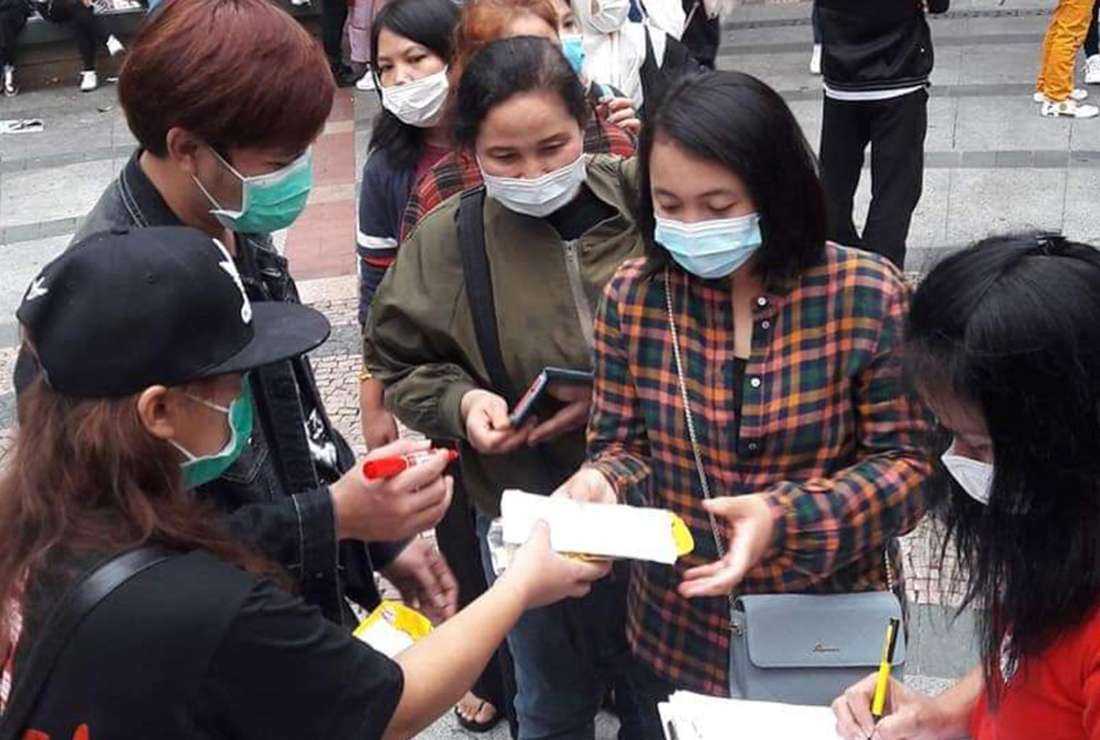
MACAU (UCAN): Thousands of migrant workers in Macau who refrained from visiting their families in their homelands due to Covid-19 restrictions face increased mental issues and familial conflict, Yosa Wariyanti, president of the Indonesian Migrant Workers Union in Macau, said on November 28.
The migrants rights activict told the news agency, Hoje Macau [Macau today] that around 45,000 migrant workers had not visited their homeland to meet their kin since the pandemic started in 2019 and Macau tightened its travel restrictions.
“First, if we went, we wouldn’t be able to return [to Macau]. Afterward, we could go back, but the quarantine was very long, 21 days, and very expensive,” Wariyanti explained.
With the Macau government relaxing quarantine requirements on November 12 to five days in a hotel and three days at home, many workers have expressed their desire to go home.
Wariyanti herself has not been able to visit her home in Indonesia since 2019, and her already deteriorating family relationships worsened when she missed her youngest son’s graduation ceremony in 2021.
She was scheduled to visit her family and sort out their differences after attending the fifth Global Assembly of the International Migrants Alliance [IMA], in Bangkok, Thailand, which was held from November 30 to December 3.
The conference included a series of panel discussions on issues affecting the sector, assessing the alliance’s four years of work, acceptance of new members, the election of new officers, and preparing the development plans for the next three years.
Wariyanti herself has not been able to visit her home in Indonesia since 2019, and her already deteriorating family relationships worsened when she missed her youngest son’s graduation ceremony in 2021
Established in June 2008 by 108 organisations from 25 countries, IMA now has more than 158 member groups from 30 countries worldwide. It aims to “strengthen and put forward the voice of the grassroots migrants, refugees and displaced people on issues affecting them and their families.”
Wariyanti observed that many couples had faced separation or divorce over the past three years because of the monetary crisis, and uncertainty over the possibility of returning home.
“Some [family members] don’t understand that, when the situation is difficult here, we don’t receive a salary and we can’t send money home,” the Indonesian woman said. “We say we are an ATM.”
Many migrant workers faced a loss of pay during the partial confinement of July 2022 when the government permitted employers to not pay workers who were forced to stay at home.
Many migrant workers were forced to survive on food donations as they faced a serious shortage of essential goods. Caritas Macau joined authorities in offering food aid to affected migrants.
Wariyanti also pointed out that cultural norms often force migrant workers to not reveal the problems that they face and even borrow money to fulfill the needs of their families.
“In our culture, we don’t want to be a burden on our family. Even if we are sick, or unemployed, we always say we are fine,” she explained.
She added that “we [migrant workers] always send money and some even borrow money from moneylenders [for their family].”
With an estimated 21,000 people per square kilometer on the 33 square kilometres of land, Macau is one of the world’s most densely populated places.
The multimillion dollar gaming and gambling industry, estimated to be seven times larger than that of Las Vegas, is Macau’s primary source of income and was the worst affected after the onset of the Covid-19 pandemic.
The unemployment rate in Macau was 3.7 per cent from April to June 2022, up from 2.9 per cent over the same period in 2021.










